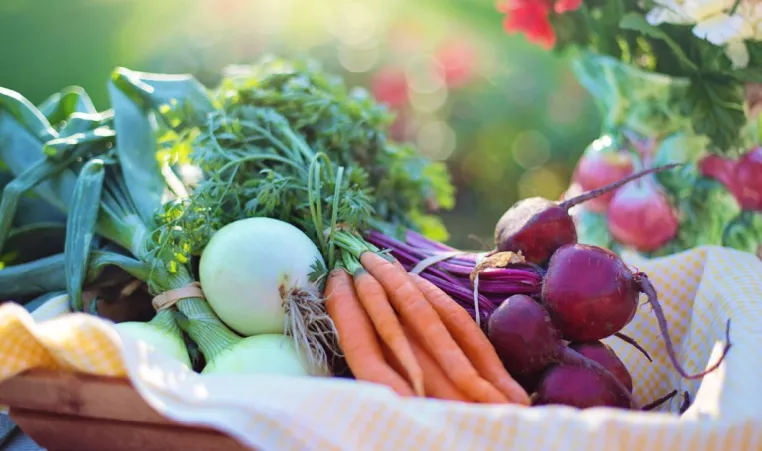Seasonal Eating: Fall and Winter Produce

Article provided by Marlene Rafferty, RD, LDN, registered dietitian at Nemours/Alfred I. duPont Hospital for Children.
Typically the idea of eating fresh fruits and vegetables seems easiest in the spring and summer when farm stands and markets are more accessible. Thankfully the fall and winter months provide a bountiful amount of fresh fruits and vegetables with many nutritional benefits.
Examples of fall and winter produce:
Fruit
- apples
- cranberries
- grapes
- pears
- pumpkin
- clementines
- grapefruit
- kiwi
- pomegranate
- oranges
Vegetables
- beets
- broccoli
- brussel sprouts
- cabbage
- carrots
- cauliflower
- celery
- collard greens
- kale
- mushrooms
- onions
- parsnips
- potatoes
- radishes
- sweet potatoes and yams
- winter squash
Benefits
Fruits and vegetables provide ample amounts of dietary fiber along with specific vitamins and minerals our bodies need. Notably Vitamin A rich fruits and vegetables really shine in the cooler months. Pumpkin, butternut squash, sweet potatoes, and carrots all contain this essential vitamin. Vitamin A plays a critical role for our eye health & immune system.
When choosing seasonal produce, you are making not only a healthy choice for your family but also benefiting your local farmers! Plus, you are helping make a positive impact on the environment by minimizing pollution caused by shipping food long distances.
Happy seasonal eating and enjoy that fall and winter produce!